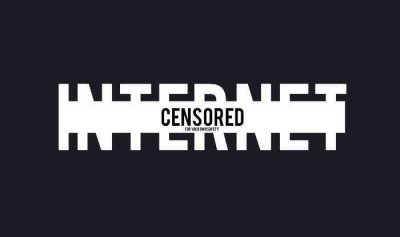Pages Purged by Facebook Were on Blacklist Promoted by Washington Post

Media outlets removed by Facebook on Thursday, in a massive purge of 800 accounts and pages, had previously been targeted in a blacklist of oppositional sites promoted by the Washington Post in November 2016.
The organizations censored by Facebook include The Anti-Media, with 2.1 million followers, The Free Thought Project, with 3.1 million followers, and Counter Current News, with 500,000 followers. All three of these groups had been on the blacklist.
In November 2016, the Washington Post published a puff-piece on a shadowy and up to then largely unknown organization called PropOrNot, which had compiled a list of organizations it claimed were part of a “sophisticated Russian propaganda campaign.”
The Post said the report “identifies more than 200 websites as routine peddlers of Russian propaganda during the election season, with combined audiences of at least 15 million Americans.”
The publication of the blacklist drew widespread media condemnation, including from journalists Matt Taibbi and Glenn Greenwald, forcing the Post to publish a partial retraction. The newspaper declared that it “does not itself vouch for the validity of PropOrNot’s findings regarding any individual media outlet.”
While the individuals behind PropOrNot have not identified themselves, the Washington Post said the group was a “collection of researchers with foreign policy, military and technology backgrounds.”
PropOrNot, which remains active on Twitter, publicly gloated about Facebook’s removal of the pages on Thursday. “Russian propaganda is VERY VERY MAD about their various front outlets & fellow travellers getting suspended by @Facebook &/or @Twitter,” it wrote. The tweet tagged The Anti Media and The Free Thought Project, and included a Russian flag emoji next to an emoji depicting feces.

PropOrNot did not attempt to reconcile its own narrative that the targeted organizations were front groups for the Kremlin with Facebook’s official claim that they operated independently of any government but sought to “stir up political debate” for financial motives. This is because both accusations are hollow pretexts for political censorship.
In a separate post, PropOrNot added: “Well, look at that… @Facebook removed some of the most important gray/black Russian propaganda outlets from their platform! Bravo @Facebook – better late than never, so a BIG thank you for this.”

It added, ominously: “All of these [organizations] are cross platform & have websites, but one thing at a time.”
These comments by PropOrNot make clear where the censorship measures supervised by the US government and implemented by the internet companies are going. While these organizations still “have websites,” the authorities are handling “one thing at a time.”
The clear implication is that censorship will not end with Google’s manipulation of its search platform or the removal of accounts by Facebook and Twitter. The ultimate aim is the total banning of oppositional news web sites.
The publication of the PropOrNot blacklist and its promotion by the Washington Post helped trigger a wave of censorship measures against oppositional news sites by the major technology companies, working at the instigation of the US intelligence agencies and leading politicians.
Last year, the World Socialist Web Site reported that it an other sites, including Global Research, Counterpunch, Consortium News, WikiLeaks and Truthout,saw their search traffic plunge after search giant Google implemented a change to its search ranking algorithm.
In the subsequent period, search traffic to these sites has fallen even further. Search traffic to Counterpunch has fallen by 39 percent, and Consortium Newshas fallen by 51 percent.
These developments confirm the analysis made by the World Socialist Web Site in its open letter to Google alleging that it was censoring left-wing, anti-war and socialist websites.
“Censorship on this scale is political blacklisting,” the letter declared. “The obvious intent of Google’s censorship algorithm is to block news that your company does not want reported and to suppress opinions with which you do not agree. Political blacklisting is not a legitimate exercise of whatever may be Google’s prerogatives as a commercial enterprise. It is a gross abuse of monopolistic power. What you are doing is an attack on freedom of speech.”
On Tuesday, Google admitted in an internal document that it and other technology companies had “gradually shifted away from unmediated free speech and towards censorship and moderation.” The document stated that an aim of the censorship was to “increase revenues” under conditions of growing government and commercial pressure.
The document acknowledged that such actions constitute a break with the “American tradition that prioritizes free speech for democracy.”
*
Note to readers: please click the share buttons above. Forward this article to your email lists. Crosspost on your blog site, internet forums. etc.

